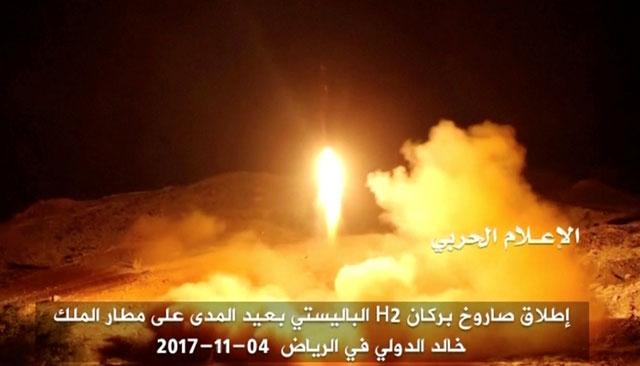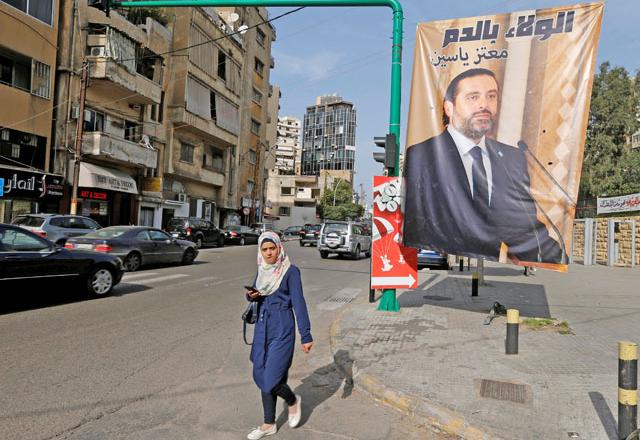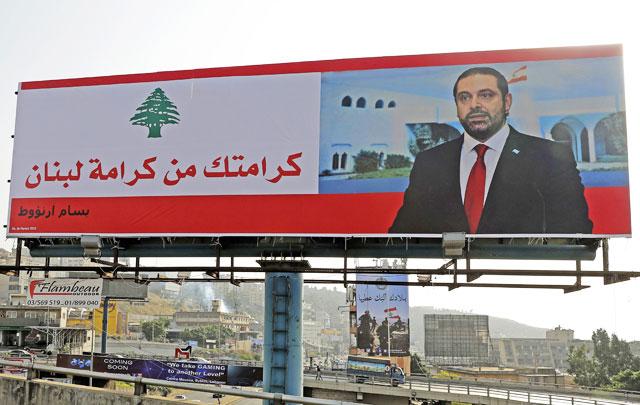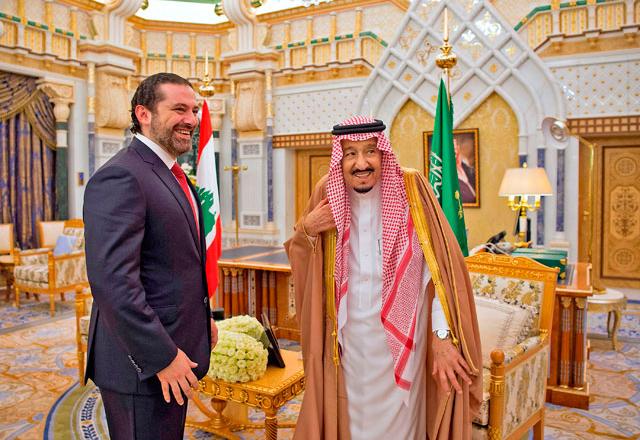You are here
Blaming Iran, Saudi Arabia says Houthi strike may be 'act of war'
By AFP - Nov 06,2017 - Last updated at Nov 07,2017

A still image taken from a video distributed by Yemen’s pro-Houthi Al Masirah television station on Sunday, shows what it says was the launch by Houthi forces of a ballistic missile aimed at Riyadh’s King Khaled Airport on Saturday (Reuters TV image)
DUBAI — Saudi Arabia and Iran traded fierce accusations over Yemen on Monday, with Riyadh saying a rebel missile attack "may amount to an act of war" and Tehran accusing its rival of war crimes.
Tensions have been rising between Saudi Arabia and Iran, which are opposed in disputes and conflicts across the Middle East from Yemen and Syria to Qatar and Lebanon.
On Monday, a Saudi-led military coalition battling Tehran-backed rebels in Yemen said it reserved the "right to respond" to the missile attack on Riyadh at the weekend, calling it a "blatant military aggression by the Iranian regime which may amount to an act of war".
Saudi Foreign Minister Adel Al Jubeir also warned Tehran.
"Iranian interventions in the region are detrimental to the security of neighbouring countries and affect international peace and security. We will not allow any infringement on our national security," Jubeir tweeted.
Iran's Foreign Minister Mohammad Javad Zarif issued dismissive tweets over the kingdom of Saudi Arabia in response.
Saudi forces on Saturday intercepted and destroyed the ballistic missile near Riyadh's international airport after it was reportedly fired by Shiite Houthi rebels from Yemen.
It was the first attempted missile strike by the rebels to reach Riyadh and threaten air traffic, underscoring the growing threat posed by the conflict on Saudi Arabia's southern border.
The coalition on Monday sealed off air, sea and land borders in Yemen, where it has been battling rebels in support of President Abed Rabbo Mansour Hadi’s internationally recognised government since 2015.
An Iranian foreign ministry statement quoted spokesman Bahram Ghassemi as saying the accusations by the coalition were “unjust, irresponsible, destructive and provocative”.
Ghassemi said the missile was fired by the Houthis in response “to war crimes and several years of aggression by the Saudis”.
The missile attack, he said, was “an independent action in response to this aggression”, and Iran had nothing to do with it.
Rewards for rebel leaders
Critics have accused the coalition of not doing enough to prevent civilian deaths in its air war in Yemen, where more than 8,650 people have been killed since the intervention began.
Repeated attempts to bring about a negotiated settlement to the conflict have failed, including a series of UN-backed peace talks.
Saudi Arabia has blamed the Houthis for the failed efforts, and on Monday offered rewards totalling $440 million for information on 40 senior officials among the rebels.
Topping the list, with a $30-million reward for tips leading to his capture, was the group’s leader Abdulmalik Al Huthi.
The Houthis, allied with Yemen’s ex-president Ali Abdullah Saleh in the conflict, have captured the capital Sanaa, forcing Hadi’s government to operate from the southern city of Aden.
Rivalry over Lebanon
Analysts said it was unclear how far Saudi Arabia would be willing to go in the escalating confrontation.
The kingdom is in the midst of an unprecedented purge of its upper ranks, with dozens of senior figures
Analyst Randa Slim of the Middle East Institute said it was unclear whether the Saudi leadership had “thought through an escalation of the scale they’re hinting at”.
Compounding concerns of an escalation, she said, is that US President Donald Trump’s administration has also taken a hard line against Iran “and may not send a deterrent message to Saudi”.
The Saudi-Iran rivalry also played out this weekend in the resignation of Lebanon’s prime minister Saad Hariri, a protege of Riyadh who said he was stepping down because of the “grip” of Iran and its ally Hizbollah on the country.
Hizbollah Chief Hassan Nasrallah hit back on Sunday, saying Hariri’s resignation had been “imposed” by Saudi Arabia.
Iran rejected Hariri’s words as “baseless” and said his resignation was “designed to create tensions in Lebanon and in the region”.
Hariri, who announced his resignation in Riyadh, on Monday met Saudi King Salman and “reviewed the situation in Lebanon”, the state-run Saudi Press Agency reported.
Related Articles
BEIRUT — Lebanese President Michel Aoun, who has refused to accept Saad Hariri's resignation as prime minister unless Hariri returns from Sa
BEIRUT — Saad Al Hariri will return to Lebanon from Saudi Arabia within two days, he said on Tuesday, 10 days after his shock resignation as
RIYADH/BEIRUT — Lebanese Prime Minister Saad Al Hariri visited Saudi Arabia on Wednesday for the first time since his abrupt resignation dur














